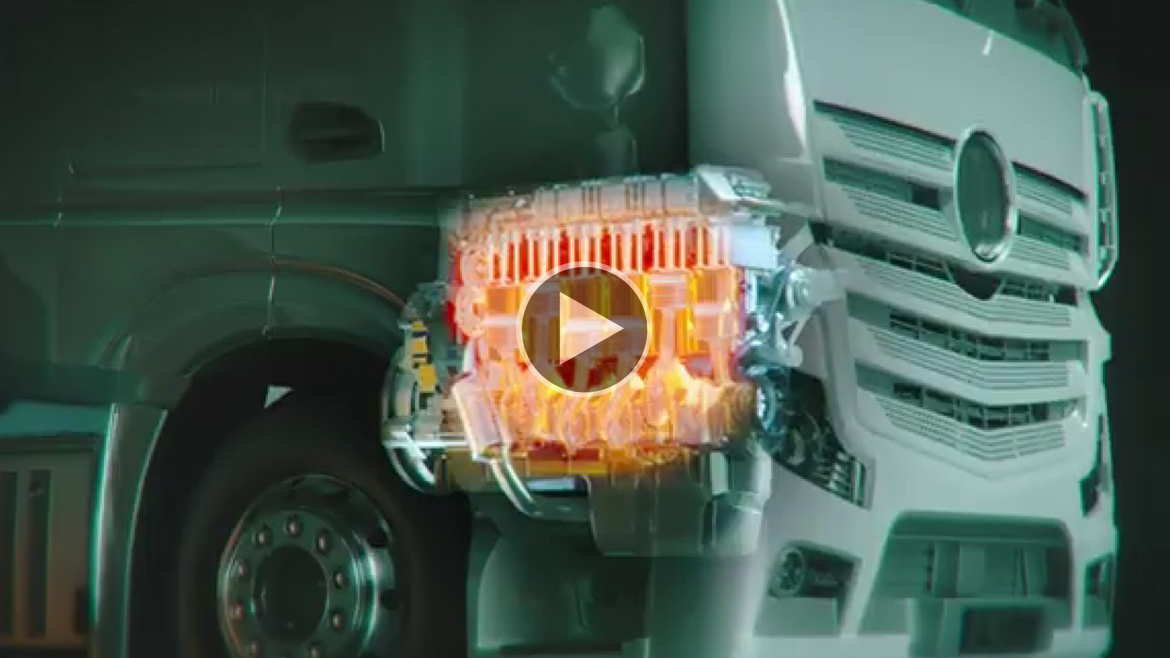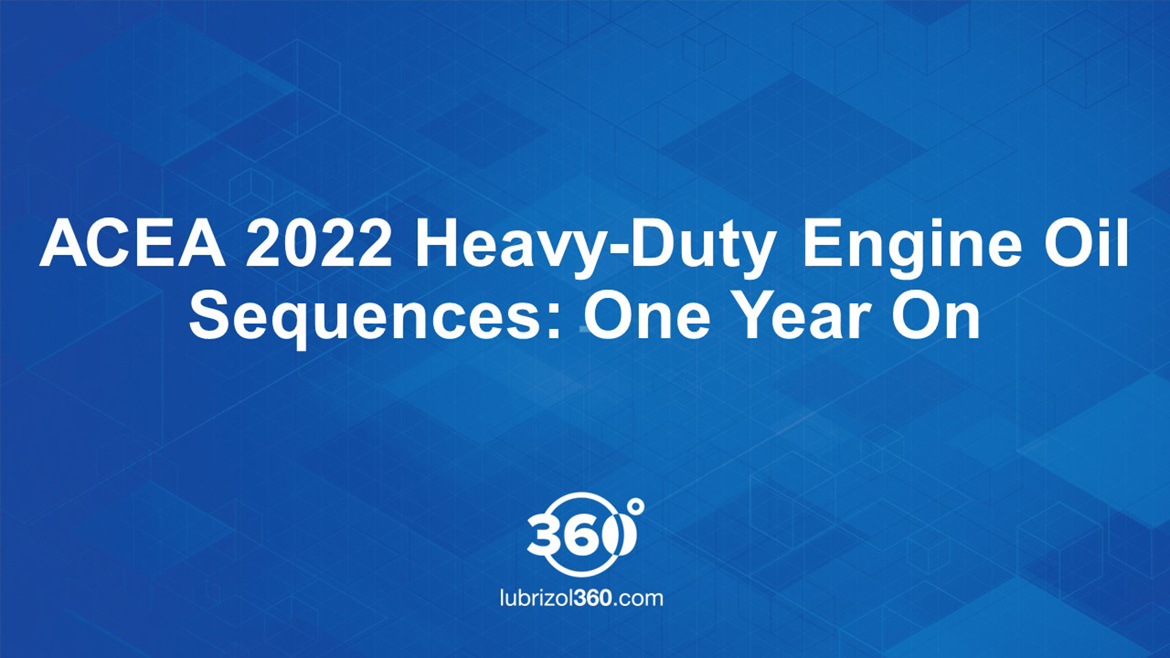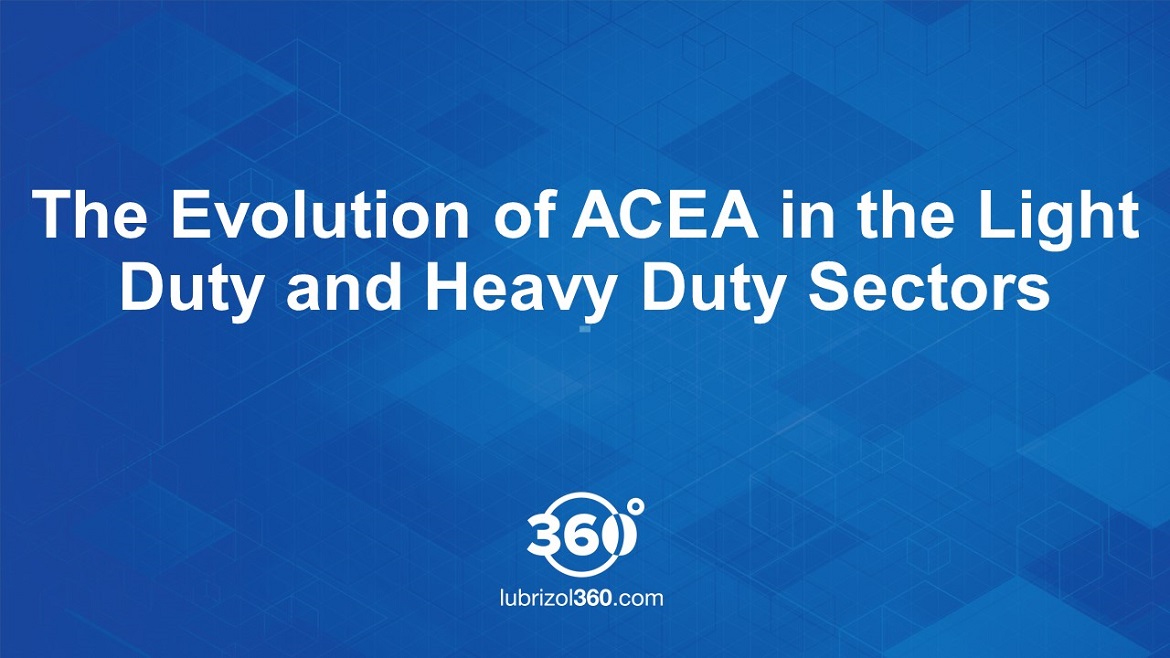Apr 14, 2025
Posted by Alex Brewster, Product Manager, Commercial Engine Lubricants
The automotive industry is continuously evolving, driven by advancements in legislation, specifications, and technological innovation. Lubricants play a critical role in meeting the performance and environmental requirements set by regulatory bodies and Original Equipment Manufacturers (OEMs). As vehicle designs become more sophisticated, lubricant formulations must evolve to ensure optimal engine performance, protection, and efficiency. In this dynamic landscape, European standards are also instrumental in shaping lubricant choices, particularly as modern commercial vehicle pistons and hardware undergo significant change.
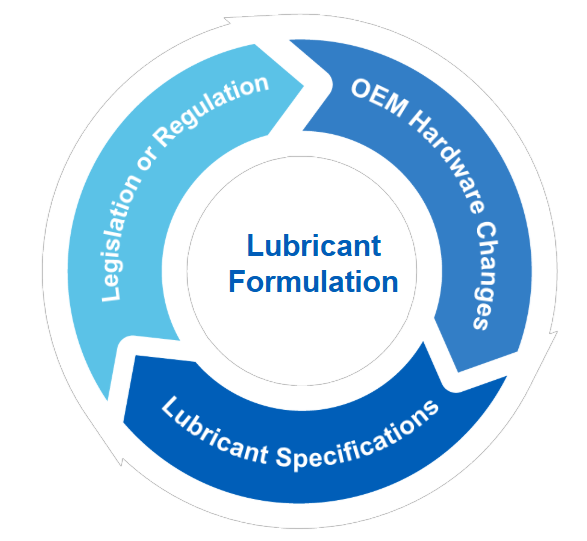
Industry Collaboration: Aligning Test and Specification Design
The introduction of ACEA E8 in 2022 represents a major advancement in the performance standards for low-SAPS heavy-duty (HD) lubricants. With the obsolescence of ACEA E6 in 2024, ACEA E8 has raised the bar with rigorous testing protocols focused on piston cleanliness, oxidation stability, and aeration control. These enhancements underscore Lubrizol’s commitment to developing lubricants that provide superior oxidation resistance, viscosity stability, and overall engine protection. By incorporating these upgrades, ACEA E8 addresses the evolving needs of modern heavy-duty engines while paving the way for further advancements in lubricant formulation.
Lubrizol recognizes that meeting these evolving standards requires close collaboration across the industry. Our partnerships with OEMs, additive manufacturers, and lubricant producers help to provide solutions that are not only compliant but also ahead of the curve in delivering enhanced durability and fuel efficiency. Through rigorous testing and innovation, Lubrizol contributes to the goals of extending engine life, reducing maintenance costs, and improving total cost of ownership for fleet operators.
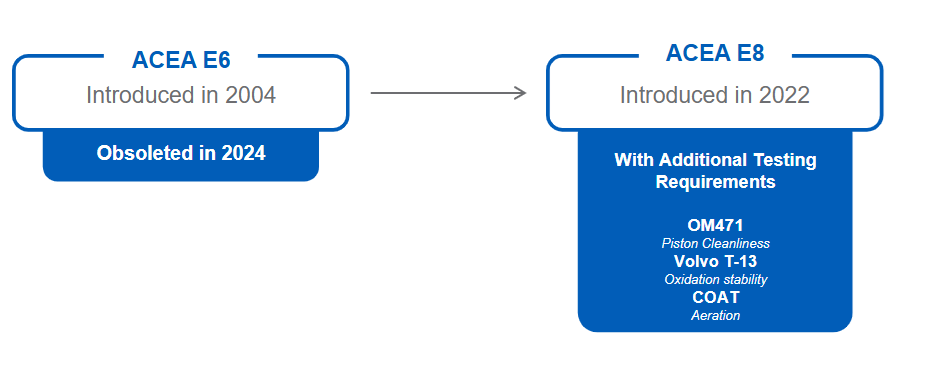
What Does This Mean for the End User?
The new engine tests introduced in ACEA E8 apply to both existing and future vehicle fleets, ensuring that operators benefit from enhanced protection and efficiency. For fleet owners and operators, this means:
- Extended Engine Life: Enhanced piston cleanliness and oxidation stability help prevent wear and deposits, ensuring long-term reliability.
- Lower Maintenance Costs: Improved aeration control and viscosity stability reduce the likelihood of breakdowns and costly repairs.
- Increased Fuel Efficiency: Optimized lubricant formulations contribute to better fuel economy, supporting sustainability goals.
- Regulatory Compliance: Meeting and exceeding emission and performance standards ensures that vehicles remain compliant with regulations.
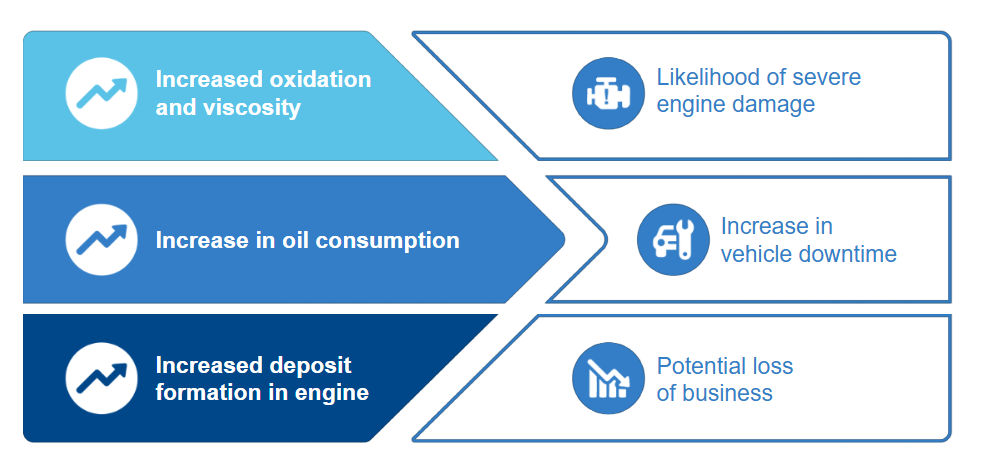
The Future of Heavy-Duty Lubricants
As the HD industry adapts to new challenges and advancements, lubricant innovation will continue to be a driving force in engine performance and sustainability. Lubrizol remains committed to advancing lubricant innovation through research, collaboration, and a deep understanding of evolving industry needs. By aligning with global standards like ACEA E8, we help provide heavy-duty lubricants to deliver engine protection, efficiency, and performance in an ever-changing market.

Learn more about Lubrizol® CV9660: Innovative Heavy Duty Additive Technology for OEM Hardware Protection at https://go.lubrizol.com/kp2rgw96.



